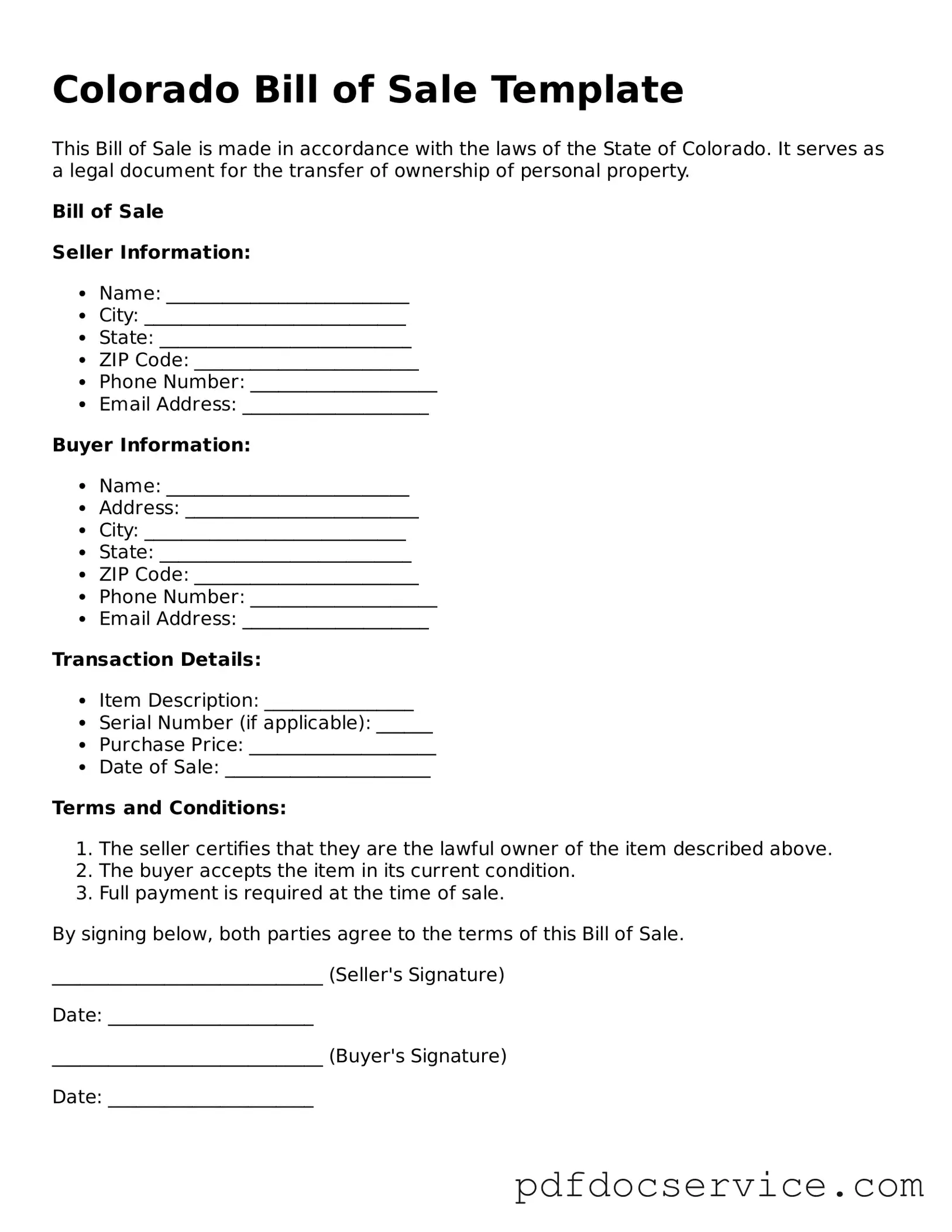Printable Bill of Sale Template for Colorado
A Colorado Bill of Sale form is a legal document that serves as proof of the transfer of ownership of personal property from one party to another. This form is essential for both buyers and sellers, as it provides a record of the transaction and outlines the details of the sale. Understanding its components can help ensure a smooth transfer process and protect the interests of both parties involved.
Open Bill of Sale Editor

Printable Bill of Sale Template for Colorado
Open Bill of Sale Editor

Open Bill of Sale Editor
or
Get Bill of Sale PDF
Finish the form now and be done
Finish Bill of Sale online using simple edit, save, and download steps.